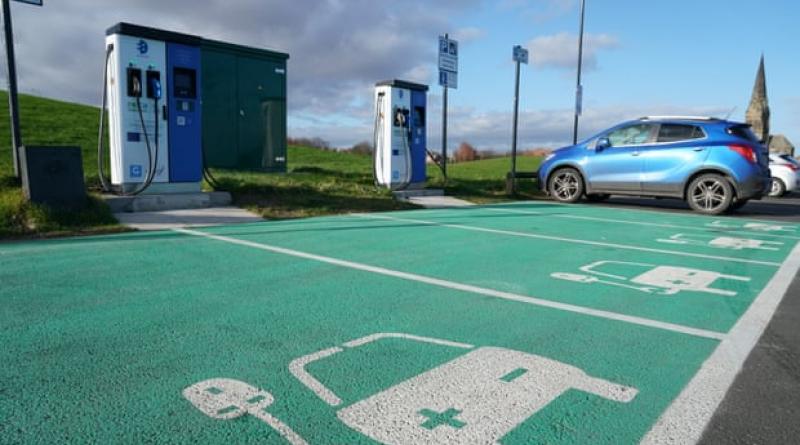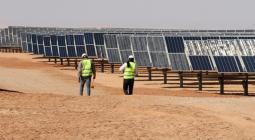We now have the proof: greening the economy doesn't come at the price of prosperity

After the financial crisis, green investment paid dividends. Coronavirus presents an even greater opportunity.
Everest is once again visible from Kathmandu, after decades shrouded in pollution. Greenhouse gas emissions have fallen to levels last seen in 2006. Nature has returned to our streets with a quack and a flurry, and people are waking to birdsong in inner cities as the roar of traffic recedes.
Clear skies bring little cheer at the food bank, however. Birdsong might lift the heart, but it won’t pay the rent.
The environmental renaissance that has come with lockdown shows both the necessity of cleaning up our filthy air and atmosphere, and the dangers of associating economic ruin with environmental gain. Daily greenhouse gas emissions fell by a quarter in many countries when the lockdown bit hardest, according to the first comprehensive study this week, and by early April were 17% down on last year. At the same time, the global economy plunged 6% and half the global workforce now face the loss of their livelihoods, says the International Labour Organisation.
Getting people back to work will mean rapidly rising carbon emissions, as it did after the financial crisis of 2008, unless strong action is taken by governments. Already, emissions are climbing: they will be only 4% down on the year if lockdowns are lifted next month.
For environmentalists, it may seem tedious to have to explain yet again why it makes economic sense to save the planet – there wouldn’t be an economy without the environment, so if we trash it “growth” will cease to have much meaning. But we teeter on the threshold of what could be the greatest depression for centuries. People who are losing their jobs and homes, with only politicians’ promises to put in their bank account, have every right to ask whether now is the time to prioritise the climate – or couldn’t it wait a year or two while we sort out this catastrophe first?
That question has a clear answer: a green recovery can produce higher returns on public spending and create more jobs in both the short term and the long term, compared to the alternative of pouring stimulus cash into the fossil fuel economy.
Those findings come from a study of the potential for a green recovery, based on a survey of finance ministries and central bankers, and a comparison with the aftermath of the financial crisis of 2008, conducted by the Nobel prize-winning economist Joseph Stiglitz, former World Bank chief economist Lord Stern, and leading economists from Oxford University.
After the financial crisis in 2008, calls for a green recovery were partially successful. About 16% of the global stimulus spending was green, including subsidies for renewable energy, seed funding for research and development, and new technology such as electric vehicles.
That proportion may seem small, and the effects of the rest of the spending – much of which went on carbon-intensive projects such as concrete construction and coal – were soon apparent: carbon emissions, which had fallen 1.4%, rebounded by a record amount of nearly 6% in 2010.
Yet the green stimulus bore fruit. Renewable energy expanded, and the cost of wind and solar power fell far faster than predicted, to the point where both forms of power are now competitive with fossil fuel generation, without the need for subsidy.
If that was possible from just 16% of stimulus spending, what could be done if the proportions were reversed? We are much better prepared to create green jobs now, according to the Oxford study. Shovel-ready projects, from insulating homes to widening cycle lanes, abound. Electric vehicle charging points are needed around the world, and the slack in public transport can be used to upgrade rail networks.
Car companies, with government incentives, could hasten the move from petrol and diesel engines. The renewable energy industry has progressed in the last decade, making home solar installation cheap and offshore wind farms viable. All of these are labour intensive and would provide quick returns on taxpayer cash.
There are fledgling industries that could soar with a government boost. Fatih Birol, the widely respected executive director of the International Energy Agency, points to hydrogen and batteries as two major areas “now ready for the big time”. Hydrogen, in the form of ammonia, will be key to decarbonising shipping, but take-up has been slow due to lack of investment.
If governments get it right, the structural changes needed to bring emissions to net zero in the next 30 years will come with a gain in jobs and security. But more needs to be done to ensure that people see the positive, rather than associate falling emissions with falling prosperity. Much of the public discussion so far has focused on attaching “green strings” to bailouts for established industries such as airlines, fossil fuels and car manufacturing. Those are certainly needed – as the failure to attach conditions after the 2008 crisis clearly shows – but can seem like punishing industries already on their knees. Workers on airlines and in shale fields are workers too, with mortgages to pay and families to care for. Shrugging off the loss of their jobs as the casualties of a cleaner future is not good enough: there must be a clear path to high-quality alternatives.
After the financial crisis, capital did not reel for long – the initiative was soon recaptured by austerity advocates and increasingly by populists who persuaded voters in many countries that the rollback of the state was the price of fiscal stability. The same forces are still in place: Donald Trump’s White House has already seized the excuse to repeal dozens of regulations on clean air and water, threatening to reverse environmental protections to a pre-Nixon state. If things are to be different this time, people need reassurance on jobs above all, and hymns to nature must be sung to the backing hum of industry.
-
Fiona Harvey is the Guardian’s environment correspondent
22 May 2020
The Guardian




